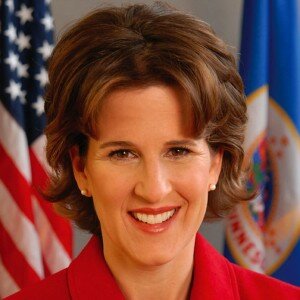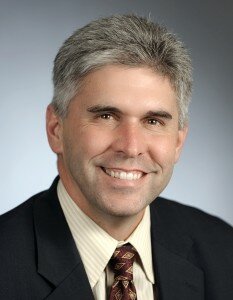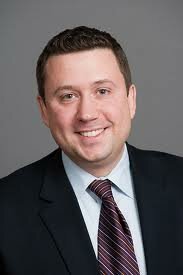The following editorial appeared in the June 3, 2015, issue of the Star Tribune:
Privatization push for county audits would gut a constitutional office.
by Editorial Board, Star Tribune
 Minnesotans likely don’t know much about the work of the Office of the State Auditor. That’s because they haven’t needed to. For decades, the office has competently and effectively guarded taxpayer interests in the large cities, counties and public pension funds it audits, allowing citizens the luxury of trust in those entities’ fiscal integrity and fidelity to the law.
Minnesotans likely don’t know much about the work of the Office of the State Auditor. That’s because they haven’t needed to. For decades, the office has competently and effectively guarded taxpayer interests in the large cities, counties and public pension funds it audits, allowing citizens the luxury of trust in those entities’ fiscal integrity and fidelity to the law.
Thus it must come as a surprise that a dispute over the auditor’s authority is a stumbling block this week as DFL Gov. Mark Dayton (a former state auditor) and leaders of the House GOP majority seek an agreement that would lead to a special session. More unusual: The disagreement is over a provision in a bill Dayton already signed into law, but wants excised as a condition of calling a special session.
The House prevailed in a wee-hours conference committee on May 17 in a provision that was described as allowing all 87 counties to obtain audits from private auditing firms rather than the state auditor, allowing counties a lower-cost option. Since 28 counties, Hennepin among them, already have such permission (a consequence of state budget cuts in 2003), the idea evidently struck a majority of legislators as relatively harmless.
It’s not. It repeals the entire statute governing the state auditor’s authority to audit counties, and because of interlocking statutes, perhaps more. It would lead to the dissolution of the office’s Audit Practice Division, which represents about two-thirds of the 100-person shop, State Auditor Rebecca Otto said Tuesday. With it would go fees that fund her office’s overhead, leaving the office more dependent on state appropriations than it is today.
Private auditors may be qualified to review county bookkeeping, but few such firms can provide the compliance review that the state auditor performs to assure that county practices comply with state law. That oversight, plus the expertise of a staff that has received national awards, would be lost if the privatization provision stands. So would be the independence that’s designed into an office that’s accountable to Minnesota voters rather than to those who hire them.
The privatization provision is also troubling because it reaches into what may be unconstitutional territory. The Minnesota Constitution established the auditor’s office. Although the Legislature can modify the auditor’s functions, it’s doubtful that it is constitutionally permitted to gut the office — as the provision in question nearly does.
Minnesota has experience eliminating a state constitutional office the right way. In 1998, the state’s voters approved a constitutional amendment scrapping the position of state treasurer. If the Legislature thinks the state auditor should be put out of business, it can take that case to the voters in a general election without seeking the governor’s approval. By enacting a statute instead to cripple the office, the Legislature seems to be inviting a summons to make its case in court.
2015 Minnesota legislative session · Rebeccca Otto · State Auditor Otto
The following commentary by House Minority Leader Paul Thissen appeared in the May 23, 2015 StarTribune:
From oil trains to kids, it’s no laughing matter.
 With a healthy budget surplus thanks to a growing economy, the 2015 legislative session began with great opportunity to keep Minnesota moving forward. Unfortunately, the session ended in chaotic fashion this past Monday and with few accomplishments.
With a healthy budget surplus thanks to a growing economy, the 2015 legislative session began with great opportunity to keep Minnesota moving forward. Unfortunately, the session ended in chaotic fashion this past Monday and with few accomplishments.
With David Letterman having read his final top 10 list this week, I thought I would share the (not-so-funny) top 10 failures of the 2015 legislative session:
10. Failed to finish the work on time
Given a $2 billion budget surplus, most believed that the Legislature would be able to work with Gov. Mark Dayton and finish on time. Unfortunately, the Republican majority chose to send us into a special session over their unwillingness to compromise with the governor on his top priority: investments in our youngest learners.
9. Failed to adequately invest in long-term care workers
GOP: Education veto overshadows successes of 2015 Legislature
The Legislature did increase funding for nursing homes this session. However, the insistence by House Republicans on cutting health and human services spending in a time of surplus meant that no money was included for home and community-based caregivers who care for the elderly and disabled.
8. Failed to get “dark money” out of politics
The previous election saw millions of dollars in secretive spending by corporate special-interest groups on endless mailings and TV and radio ads in targeted legislative districts. House Republicans repeatedly blocked DFL efforts to increase disclosure of this spending so voters know who is trying to influence their vote. Why?
7. Failed to support hardworking Minnesotans
On top of trying to cut the minimum wage for tens of thousands of Minnesotans, Republicans blocked progress on the Working Parents Act this session. The act would have ensured that working Minnesotans have access to paid family leave and earned sick time, improving the work-life balance for Minnesota families.
6. Failed to make college more affordable for students
Even though Gov. Dayton and a DFL Legislature managed to freeze tuition for all students at public universities in 2013 while facing a $627 million budget deficit, House Republicans drastically shortchanged Minnesota college students and their families in a time of surplus, guaranteeing tuitions will rise for thousands of students around the state.
5. Failed to improve family budgets
Despite their rhetoric about putting family budgets ahead of government budgets, House Republicans passed a tax bill that included billions in permanent tax giveaways to the richest Minnesotans and businesses but small, temporary relief to average Minnesotans. Democrats couldn’t support those misplaced priorities and, ultimately, the only tax provision that passed was a $30 million tax increase tucked into the education omnibus bill in the middle of the night.
4. Failed to pass a comprehensive transportation package
Even though this was supposed to be the “transportation session” — with all parties agreeing on the need for billions of new dollars to fix our roads and bridges and statewide transit system, the House Republicans’ failure to compromise on a package yielded a “lights on” status-quo bill. How many roads and bridges can we repair by doing nothing?
3. Failed to address oil train safety
In just the last year, we have seen several oil train derailments that caused serious public safety risks along oil train routes that go straight through Minnesota. Democrats brought forward legislation that would ask the railroad companies — who are experiencing record profits — to pitch in for safety improvements, but Republicans blocked those efforts.
2. Failed Greater Minnesota
During the last election, Republicans said they would focus on Greater Minnesota, but this turned out to be another case of politicians saying one thing and doing another. Their aforementioned failures to compromise on taxes, transportation and rail safety — while shortchanging education and economic development — hurt Greater Minnesota the most.
1. Failed to invest in our kids
Unbelievably, House Republicans forced a special session over their stark opposition to optional prekindergarten for Minnesota 4-year-olds. When a family has extra money, they invest in their kids’ future. With a $2 billion surplus we should do the same, and not only adequately fund our schools, but also ensure that all of Minnesota’s youngest learners have the same opportunity to get ahead.
This top 10 list won’t get any laughs from Minnesotans who rightly expected more from this new Republican majority in the Minnesota House. But if there is any silver lining in the failure of the 2015 session, it’s that we now have an opportunity to hit the reset button.
During the session, House Democrats brought forward alternative ideas to move ahead on education and the other big challenges our state faces, but those ideas were ignored by the Republican majority. In a special session, House Democrats again stand ready to work together with the governor, as well as Republican legislators, on the bold, common-sense agenda for our future that Minnesotans expect and deserve.
Just because very little was accomplished in the regular session doesn’t mean that very little has to be accomplished in a special session.
Paul Thissen, DFL-Minneapolis, is minority leader of the Minnesota House.
2015 Minnesota legislative session · MN GOP fail · Paul Thissen · Rep. Thissen
 We’re in the downhill stretch of this year’s legislative session. Wondering what’s happening? We’ve got an update of the top issues summed up in one sentence from Rep. Joe Atikins (DFL-Inver Grove Heights):
We’re in the downhill stretch of this year’s legislative session. Wondering what’s happening? We’ve got an update of the top issues summed up in one sentence from Rep. Joe Atikins (DFL-Inver Grove Heights):
SCHOOL FUNDING. The current House Republican proposal provides less than a 1 percent increase in general aid to schools while Senate DFLers are at slightly more than 1 percent, roughly one-third of what the Governor is seeking.
COLLEGE TUITION. A two-year freeze of tuition could be in jeopardy if the higher education funding bill proposed by House Republicans is approved; Gov. Dayton and Senate DFLers are looking to extend the tuition freeze for two more years.
TRANSPORTATION. House Republicans figured out a way to fund transportation projects without a gas tax increase, relying on $767 in shifts and borrowing, which stands in stark contrast to the DFL Senate and Governor, who are looking for additional, dedicated funding.
BUFFERS. Some in the agricultural community have pushed back – hard – on the Governor’s proposal to require 50-foot buffers to protect streams from polluted runoff.
MINNESOTACARE. 100,000 working Minnesotans currently paying for health insurance through MinnesotaCare will have to find health insurance through MNsure under a plan released by Rep. Matt Dean (R-Dellwood), Chair of the House Health Finance Committee. (In a separate bill, Rep. Dean proposes to abolish MNsure).
LANDFILLS. For the first time ever, the House Environment Committee voted to raid the state’s Closed Landfill Fund, which is designed to have funds available in the future if/when closed landfills leak, and spend the funds on other projects.
2015 Minnesota legislative session · 2015 top issue
By Ken Martin, Chairman, Minnesota DFL
 I grew up in a Republican household where government was expected to build and safely maintain roads, bridges and other public infrastructure. The Minnesota House of Representatives Republican Caucus has made a complete U turn, putting forward a transportation funding bill that could only construct one bridge. Yes, that’s right, just one bridge.
I grew up in a Republican household where government was expected to build and safely maintain roads, bridges and other public infrastructure. The Minnesota House of Representatives Republican Caucus has made a complete U turn, putting forward a transportation funding bill that could only construct one bridge. Yes, that’s right, just one bridge.
The Republican plan calls for $750 million over a four-year period to fund transportation projects as well as $200 million from the state’s general fund and savings through “efficiencies” at the Minnesota Department of Transportation (MnDOT). There’s a commercial from the 1980s that famously clipped, “Where’s the beef?” In this case I would ask Republicans, “Where’s the bill?” This comical approach to this very pressing need does nothing to truly address this issue in the short or long term.
What Republicans aren’t willing to tell Minnesotans is that most transportation funding comes from dedicated funding and taking money out of the general fund means cuts to classrooms, nursing homes and other critical priorities in our state.
Think about it – Republican candidates promised voters, especially rural voters, that they would put their interests first, but they have no real plan to address the state’s deteriorating roads and bridges or build new infrastructure. In fact, first-term member Rep. Dale Lueck told the Brainerd Dispatch that there are roads in his district that will “jar the fillings right out of your teeth.” If Lueck supports his Party instead of his constituents, dentists in the Aitkin area will be doing brisk business.
In sharp contrast, Gov. Dayton and the Senate DFL Caucus have put forward proposals to repair and replace crumbling roads, aging bridges and prepare for an increased demand on our transportation system. DFL plans for long-term solutions will ensure Minnesota has the transportation system necessary to continue Minnesota’s economic growth.
The writing is on the wall: The Republicans’ transportation proposal that could possibly fund one new bridge, isn’t going to cut it. Only weeks into the session we see support for transportation funding growing across the state. Minnesotans are tired of making car repairs caused by poor roadways and worrying about the safety of bridges in their communities. Businesses know they won’t be able to grow if they cannot get their goods to market in a safe and timely manner.
If the Republicans don’t join DFL leaders on the road to progress, not only will they be a Party no longer recognizable to their long-time supporters, but the Minnesota so many came together to build to be a great state will become a faded memory. Without an updated transportation system, business will detour to other states and Minnesota’s economy will deteriorate along with our roads and bridges. Minnesota deserves better.
2015 Minnesota legislative session · Minnesota transportation · transportation fund
 Minnesotans likely don’t know much about the work of the Office of the State Auditor. That’s because they haven’t needed to. For decades, the office has competently and effectively guarded taxpayer interests in the large cities, counties and public pension funds it audits, allowing citizens the luxury of trust in those entities’ fiscal integrity and fidelity to the law.
Minnesotans likely don’t know much about the work of the Office of the State Auditor. That’s because they haven’t needed to. For decades, the office has competently and effectively guarded taxpayer interests in the large cities, counties and public pension funds it audits, allowing citizens the luxury of trust in those entities’ fiscal integrity and fidelity to the law. DFL48
DFL48


